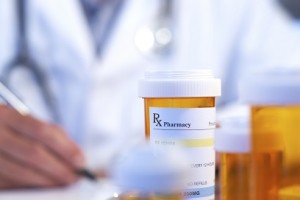Is Suboxone Addictive?
According to the Substance Abuse and Mental Health Services Administration, “the proportion of heroin admissions with treatment plans that included receiving medication-assisted opioid therapy fell from 35% in 2002 to 28% in 2010. The slow adoption of these evidence-based treatment options for alcohol and opioid dependence is partly due to misconceptions about substituting one drug for another.”
A lot of people think that using medication assisted treatment, like you would with suboxone, is trading one opiate for another, but that really is not the truth. That myth gives rise to a lot of fear about substituting one addiction for another. Can you become addicted to the medication prescribed during medication-assisted treatment?
Yes. But—and it’s a big but—you are extremely unlikely to when you take the medication exactly as prescribed. And, suboxone has a few features that really inhibit using it to get high.
If you are interested in pursuing medication-assisted treatment with suboxone, you may have questions and SuboxoneDrugRehabs.com has answers. Give us a call at 888-646-0865 (Who Answers?) and speak with someone who can connect you to treatment and resources.
Medication Assisted Treatment

Suboxone is safe and effective when taken as prescribed.
If you are one of the many struggling with prescription opiate addiction and you feel that medication could prove helpful, the National Institute on Drug Abuse identifies the following options available to you:
- agonists, e.g., methadone (dolophine or methadose), which activate opioid receptors
- partial agonists, e.g., buprenorphine (subutex, suboxone), which also activate opioid receptors but produce a diminished response
- antagonists, e.g., naltrexone (depade, revia, vivitrol), which block the receptor and interfere with the rewarding effects of opioids
Of the possible types of drugs, suboxone has proved one of the most effective because it is a combination of partial agonist buprenorphine and antagonist naltrexone. In 2002, the FDA approved the use of suboxone for the treatment of opiate addiction in the United States.
How it Works
First, picture your brain as a series of rooms. Each room has a light and when they are all lit up, the brain is very happy. And when they are all dark, the brain begins to feel deperate and sad. This is how opiate addiction works. Opioids trigger receptors in the brain (the lights) and you get euphoric/high. When you take the drugs away and the lights go out, withdrawal sets in.
A partial opioid agonist—like buprenorphine—is an opioid that triggers your brain to think it is getting a full opioid agonist, like oxycodone, hydrocodone, morphine, heroin or methadone. Even though buprenorphine only turns the lights up half way, it is enough for the brain to feel satisfied and to drive away the shadows of withdrawal and lessens craving.
Naltrexone is an antagonist, which means that it shuts the doors to the rooms once buprenorphine is in there turning the lights on low. This means that even if full agonists show up and try to work the lights, they can’t get in. When taking suboxone, you can’t get high from other full opioid agonists.
For 24 hours, suboxone sits in those little rooms in your brain with the doors closed and the lights on low. It is enough to keep cravings and withdrawal at bay. This allows you to focus on the other aspects of your MAT.
The Ceiling
But, what if you wanted to get the lights turned on fully. Surely, you would just increase your dosage and the lights would get brighter, right? Nope. Suboxone has a ceiling built in and you literally cannot take more and achieve a high.
The only way that people can use suboxone to get high is if they use it in combination with other drugs, specifically benzodiazepines, alcohol and sleeping pills generally. Others may attempt to get high by crushing and snorting suboxone tablets.
If you begin using suboxone in a way other than the way it was prescribed, you may develop a dependence upon the drug. Otherwise, it is designed to not cause addiction when used as directed. Could you get addicted? Sure. But, you would have to try very hard.
If you are looking to treat your opiate addiction with MAT and suboxone, you probably have more questions. Get them answered by the experts at SuboxoneDrugRehabs.com. Contact us at 888-646-0865 (Who Answers?) .
Is Suboxone Treatment Right for Me? – Benefit & Risk Considerations




